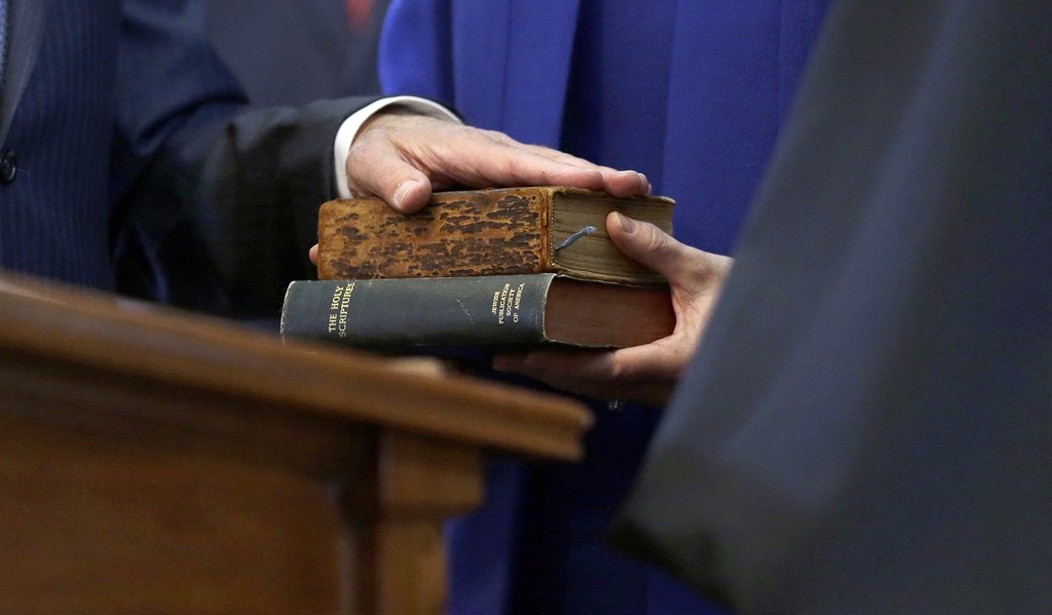Mackenzie Fraiser is 12-years-old. She’s a sixth grader at Somerset Academy, a charter school in North Las Vegas, Nevada. Mackenzie is also a Christian.
In February, she was instructed by her technology teacher to create a PowerPoint demonstration about her life. One of the requirements was to include a slide with an inspirational message.
So Mackenzie decided to use a Bible verse – specifically John 3:16. That familiar passage reads: “For God so loved the world that He gave his only Son that whoever believes in Him shall not perish but have everlasting life.”
But the teacher had a problem with Mackenzie’s inspirational message. She explained to the class that none of the students would be allowed to use any Bible verses or quotations from the Book of Mormon.
The teacher had a problem with Mackenzie’s inspirational message. She explained to the class that none of the students would be allowed to use any Bible verses or quotations from the Book of Mormon. The message was clear – you cannot be inspired by religion.
The message was clear – you cannot be inspired by religion.
Mackenzie, whose father is a pastor, told me she was terribly disappointed and concerned.
“When I was told I couldn’t use a Bible verse, I was afraid I was doing something wrong,” she said.
So Mackenzie obeyed the teacher’s edict and settled for a mundane secular saying.
A few months later, the little girl received another assignment. This time, she was told to address the topic of self-esteem.
She discussed the assignment with her parents, Tim and Kate Fraiser. They suggested she acknowledge she derives her self-esteem from having been made in the image of God.
It was at that point, Mackenzie said she would not be allowed to mention the Almighty. Her teacher had once again barred any reference to faith in the technology classroom.
Recommended
Tim thought his daughter must have been mistaken. Perhaps she misunderstood the teacher’s directive? So he fired off an email to the school seeking clarification.
The message he received was jaw dropping. The school confirmed that that teacher told students to refrain from using religious references. They said she was simply following “school law expectations.”
“The U.S. Department of Education states that students have the right to engage in voluntary prayer or religious discussion free from discrimination, but that does not include the right to have a captive audience listen or compel other students to participate,” read the email from Assistant Principal Jenyan Martinez.
“When Mackenzie created the project with the expectation she would present the Biblical saying to the class, the matter became one of having a captive audience that would be subject to her religious beliefs,” she added. “Had the assignment been designed to simply hand in for a grade, this would not have been an issue.”
The Fraisers contacted Liberty Institute, a religious liberty law firm that specializes in these sorts of legal disputes.
“Government officials telling little girls they can’t mention God is not the law,” said Liberty Institute President Kelly Shackelford. “It’s unlawful discrimination and it’s morally wrong.”
Liberty Institute attorney Jeremy Dys is representing the family. He said the U.S. Department of Education clearly permits students to use Bible verses in class assignments.
“If a school official tells students that their beliefs cannot be expressed in class assignments, it teaches them that religion is bad,” Dys told me. “This case really demonstrates why it is important to protect religious liberty."
They’ve given the school 10 days to remedy the situation – and that includes an apology and a promise not to censor religious content in assignments.
So here's what needs to happen. Somerset Academy needs to follow the law. They need to allow Mackenzie to redo her assignment with the Bible verses. And they need to apologize. If they fail to do so, the federal government should revoke their funding.
A few weeks ago the Department of Education threatened to withhold funding for any public school that did not protect the rights of transgender students. I believe schools should be held to the same standard for religious students.
























Join the conversation as a VIP Member